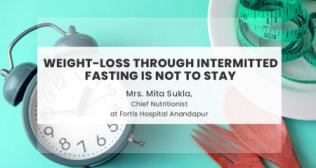
Understanding a Balanced Diet: Key Components and Tips for Optimal Health
Nowadays the primary focus of each person is his or her health. Staying fit requires people to engage in exercises besides taking foods that are health wise beneficial to the body. Unfortunately, nutritional food has been replaced with unhealthy processed as well as packaged food owing to lack of time and concern. People are thereby putting on weight therefore, and this causes several health issues. In this guide, we will learn about the basics of a balanced diet and explore how simple food choices can make the way for healthier, happier life:
What is a balanced diet?
In simpler terms, balanced diet definition is dietary configuration with appropriate portions of all essential nutrients including carbs/carbohydrates, fats, vitamins, minerals, fiber and proteins. It implies that in each of the bites one takes there ought to be the right amount of the requisite nutrients.
A balanced diet is necessary to keep one’s physical fitness intact. It bolsters appropriate growth in the case of youngsters as well as also helps to enhance the body’s comprehensive health. One’s optimal weight can be maintained, and along with that improved immunity as well as muscular tone are the result of a balanced diet.
Importance of Balanced diet
Having the right proportion of all the essential nutrients enables us to fight diseases, strengthen our immune system, and always be full of energy and vitality. Besides allowing one to regulate his or her body weight, a balanced diet assists in managing one’s digestive and metabolic systems.
Every person requires healthy eating practices as well as a balanced diet. Particularly for those who want to maintain their health as well as fitness, individuals should eat properly. One’s fitness goals can be met, as well as growth of muscles along with burning of fat, with the help of balanced diet.
The Essential Components of a Balanced Diet
There is no single list that can point out and distinguish all the requirements of a balanced diet but there are some basic nutrients that are ‘essential’ or ‘indispensable’ for good health.
Carbohydrates: The Energy Providers
Carbohydrates are the body’s main source of meals and are at times used to fuel body activities. This food group consists of brown rice, quinoa, whole-grain bread and any other meal that contains a high proportion of whole grains; they are necessary for human nutrition and help one to sustain energy throughout the day.
Proteins: The Building Blocks
Proteins are also required for building new cells, muscle tissues repair, and for boosting immune system. Some of the foods high in protein consist of lean meats, fish, eggs, and plants foods which include lentils and chickpeas among others.
Fats: The Good, The Bad, The Ugly
It is important for people to realize that not all types of fats are bad for them. Saturated fats and trans fats should be avoided, whereas polyunsaturated and monounsaturated fats which are found in olive oil and avocadoes should be consumed.
Vitamins and Minerals: Small but Mighty
While required in minute quantities than macronutrients, these micronutrients play a crucial role in your health. From strengthening one’s bones to helping one’s blood clot, the components of nutrition, vitamins and minerals should be noticed.
Water: The Essence of Life
Water is a considerable part of one’s bodies and is involved in several essential bodily functions, spanning from thermoregulation to removal of wastes.
Fiber: The Digestive Wonder
Fiber is essential in maintaining healthy digestion and helps in management of weight since it helps one feel full.
Antioxidants: The Free-Radical Fighters
Present mainly in fruits and vegetables, antioxidants neutralize free radicals that cause oxidative stress and lower the likelihood of long-term diseases.
Common Mistakes to avoid when following a balanced diet
Balancing one’s diet is a noble endeavor, however, there are tried and tested diet blunders that must be avoided to record progress. Another common mistake is to focus on one type of food only and consume it, for instance, to consume only fruits, or only proteins and disregard vegetables and grains. This can lead to what is named nutrient imbalances and deficiencies. To combat this, be sure plate has multiple food groups; you should strive to have multiple colors on your plate this includes fruits and vegetables, lean protein and whole grain foods.
Another is abstinence from taking breakfast and other meals, this could be because of the busy schedule in the morning or having a perception that skipping meals is a wise way of reducing on the amounts of food and thus the calories consumed. Skipping meals is unhealthy because it makes the metabolism rate slow down and ushers in overeating. Thus, better strive to eat normal, balanced meals and snacks so that one can be able to avoid these sudden urges to binge eat due to hunger.
Also, do not go for ‘diets’ that reduce the kind of foods you’re allowed to eat drastically or the ones that claim to give immediate results. It is better to shift the emphasis on making slow long-term and permanent changes to your eating regimes.
If you are aware of these general diet pitfalls and incorporate effective strategies, it is possible to have a healthy-eating plan. It is thus important that one should avoid such diet tricks and ensure that they stick to a healthy eating plan that entails having balanced meals and at the right time.
Incorporating a Balanced Diet into your daily routine
Adopting the principles of balanced diet in a working person’s life, nonetheless, can be effective and satisfying. The first step is that one needs to think about what one wants to eat throughout the day – in the morning, in the middle of the day, and in the evening. Prepping on weekends could prevent working individuals from scramming during the week and have their healthy foods handy. Target to serve fruits, vegetables, lean meats, and whole-grain products to cover all the food groups in a balanced manner.
While at work bring fruit, yogurt or nuts to the workplace to help one overcome a bad habit of taking unhealthy snacks. Choose salads, wrap or a grain-based bowl with abundance of greens and lean proteins rather than eating fast foods. Drink a lot of water and ensure you have a water bottle to sip from all through the day.
At home, the portion size of the meals and the type of foods provided, and the combination of meals should be done in the right manner. Utilize a slow cooker or instant pot for meal preparation in advance so that one does not have to follow the cooked meal with extras. Following the principles of mindfulness, slowing down and learning how to listen to the body’s signals as it enjoys food is also very helpful in improving eating patterns.
By adopting the above healthy eating tips and making minor modifications that favor the recommended dietary change one will realize that a change to a healthy lifestyle is easier and doable. Begin this and experience the dividends of better health through less fatigue soon!
When to seek Professional Guidance
In some situations, especially where people are in doubt about what they ought to take for breakfast, getting professional advice is very important if they are to achieve the best form of health. Many people of the world population are affected by malnutrition at the present age. It is recommended that one seek the service of a dietician or a nutritionist especially if one is suffering from some conditions like allergies, Gastroparesis, or Diabetes. It is also useful at the beginning of substantive changes in the diet or if the person does not know how to achieve a rational rate. It is always useful to consult with professionals to develop a range of individual diets which will meet a person’s needs and expectations. Through referring to a dietitian one can be able to observe a healthy diet plan as a way of taking care of the body. One should remember, counseling for nutrition when needed opens the path to a healthier and more balanced life.
Conclusion: Embrace a Balanced Diet for Better Health
Proper nutrition and balance in one’s meals are some of the most essential prerequisites to having a great life. Although most people perceive it as a way of feeding a person’s hunger, it is in fact a choice of lifestyle that may impact on the health of a person – physical, mental and even his emotional well-being. A balanced and nutritious diet provides a person’s body with the necessary nutrients, vitamins, as well as minerals to be able to perform effectively. One can feed the body as well as minds by implementing balanced nutrition: through including whole foods, being mindful of water, portion control and mindful eating. Reducing the intake of sugar and salt together with the adoption of more of the healthy fats will even improve our health and protect us from long-term diseases. It is important to remember though, that it is possible to make consistently gradual changes to a diet, and sustain them, which may yield significant lifetime benefits.
Balanced diet Frequently Asked Questions
What is the definition of a balanced diet?
A balanced diet comprises a sufficient quantity of all the required nutrients such as carbohydrates, fats, proteins, vitamins, minerals, fibers and water which are required by our body to grow, stay healthy as well as remain free of diseases.
What is the importance of a balanced diet?
A balanced diet: meets the nutritional requirements of the body and prevents malnutrition, keeps up the level of energy in our body, prevents lifestyle diseases such as diabetes and heart diseases, supports immune system and tissue/cell repair.
What are the essential components of a balanced diet?
Proteins, Carbohydrates/Carbs, Fats or Lipids, Micronutrients such as Vitamins and Minerals, Fiber/Roughage, as well as Water are the essential components of a well-balanced healthy diet.
What is the function of protein in our body as well as sources from which we can obtain protein?
Protein helps a person build muscles and develop skin and hair. It can be obtained from sources like
What are the foods to avoid for a healthy balanced diet?
Red Meat, Refined grains such as - maida, white bread, noodles, pasta, Trans fat – butter, cheese, added sugar, Pastry as well as processed foods should be avoided.
How can I balance my diet effectively?
Balancing diet comprises several practical approaches such as:
Controlling the portion size
Planning the Meal as well as including diversity of food groups
Substituting processed food items with whole foods
Keeping oneself hydrated by drinking water
By eating food in moderation



















